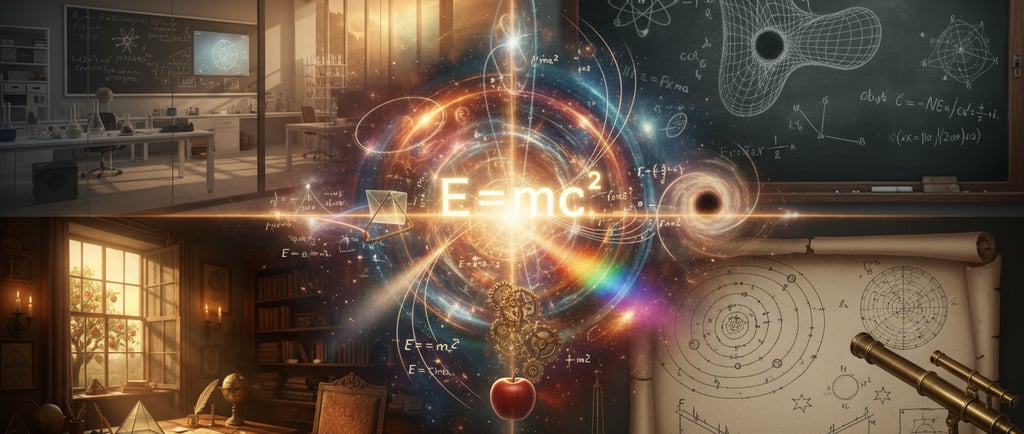Einstein Or Newton
Einstein vs Newton, Who was greatest hero of the time and physics.


Born: March 14, 1879 in Ulm, Germany
Famous for: The Theory of Relativity — revolutionized physics by showing how space and time are connected.
Most famous equation: E = mc², proving that energy and mass are interchangeable.
Nobel Prize: Won the 1921 Nobel Prize in Physics for explaining the photoelectric effect, not relativity.
Changed time itself: Showed that time is not absolute — it slows down when you move faster or near strong gravity.
Quantum contributions: One of the founders of quantum theory, though he doubted it, famously saying “God does not play dice.”
Political stance: A pacifist and humanitarian, he opposed war and supported civil rights.
Moved to the USA: In 1933, fled Nazi Germany and took a position at Princeton University.
Impact on modern science: His theories are essential for GPS systems, nuclear energy, and modern cosmology.
Died: April 18, 1955 in Princeton, New Jersey — his brain was preserved for study (controversially).
EINSTEIN
NEWTON
Born: January 4, 1643 (Woolsthorpe, England)
Famous for: The Laws of Motion and Universal Gravitation, forming the basis of classical physics.
Apple story: Inspired to think about gravity after seeing an apple fall from a tree — the story is partly symbolic, not literal.
Published masterpiece: “Principia Mathematica” (1687) — described motion, gravity, and calculus foundations.
Invented calculus: Developed calculus (independently from Leibniz) to explain motion and change.
Discovered light spectrum: Used a prism to show that white light splits into colors, founding optics.
Religious and mystical side: Studied alchemy and theology as much as physics; wrote more about the Bible than science.
First scientific knighthood: Became Sir Isaac Newton in 1705 — one of the first scientists to be knighted.
Career outside science: Served as Master of the Royal Mint, reforming England’s currency and pursuing counterfeiters.
Died: March 31, 1727 (London) — buried in Westminster Abbey, among Britain’s greatest minds.
